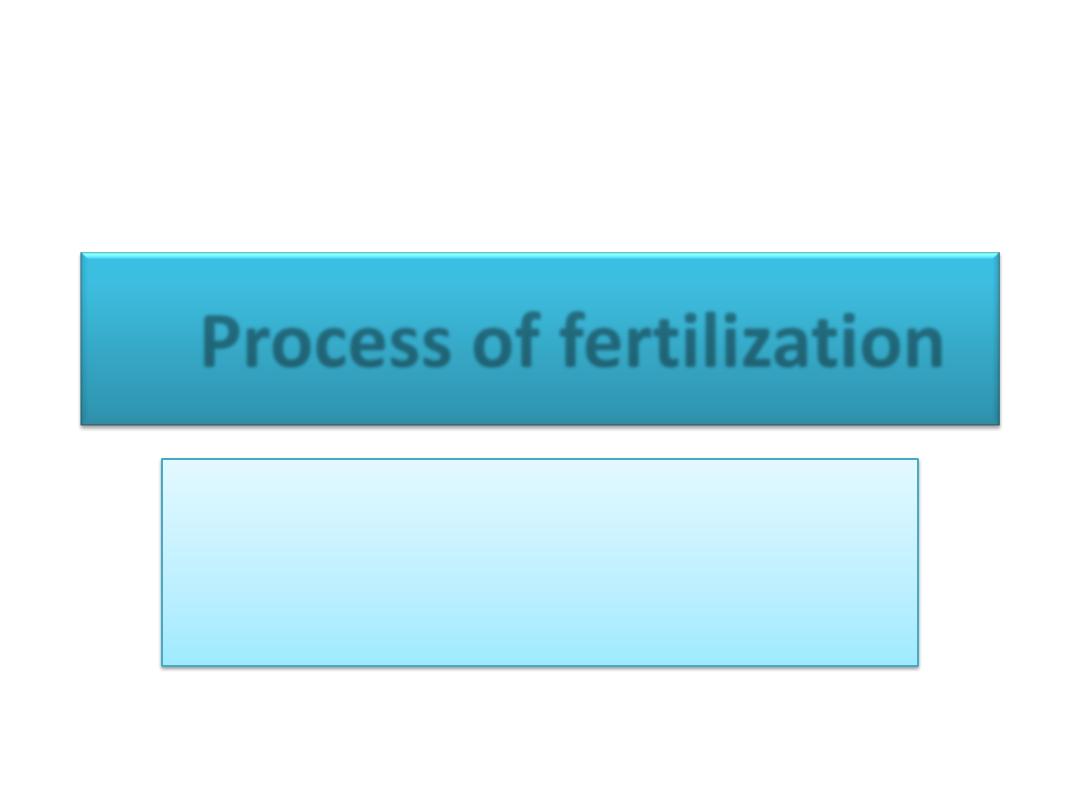
Process of fertilization
Prof. Dr. Malak A. Al-yawer
Department of Anatomy/ Embryology section

Objectives
At the end of this lecture, the 1
st
medical student will
be able to
• Name the mechanisms and barriers involved in sperm
transport along the female genital tract
• State the events occurring in the spermatozoa
immediately prior to fertilization
• State the events occurring in the oocyte immediately
after sperm penetration
• Define polyspermy and list the steps that an oocyte
undertake in order to prevent it
• Name some contraceptive methods.
• Outline the procedures involved in in-vitro fertilization
• Name other types of assisted conception
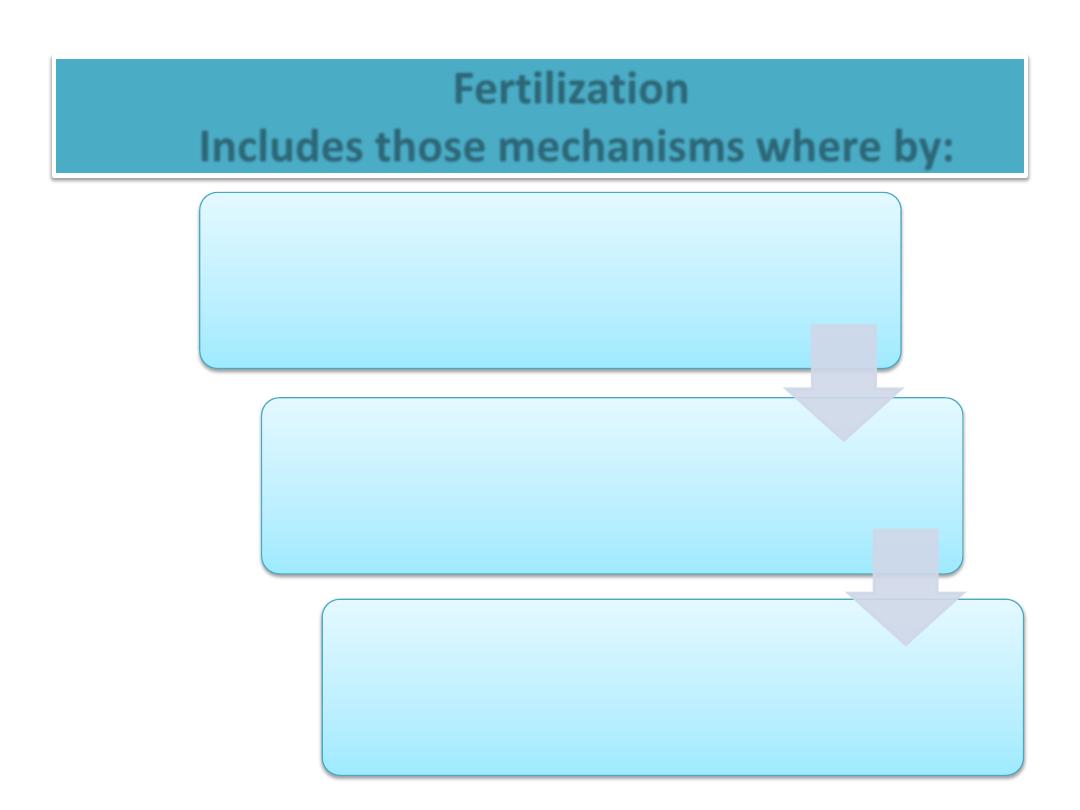
Fertilization
Includes those mechanisms where by:
A sperm approaches to
Becomes attached to and
then penetrates the surface
of an ovum
The early series of changes
which follow
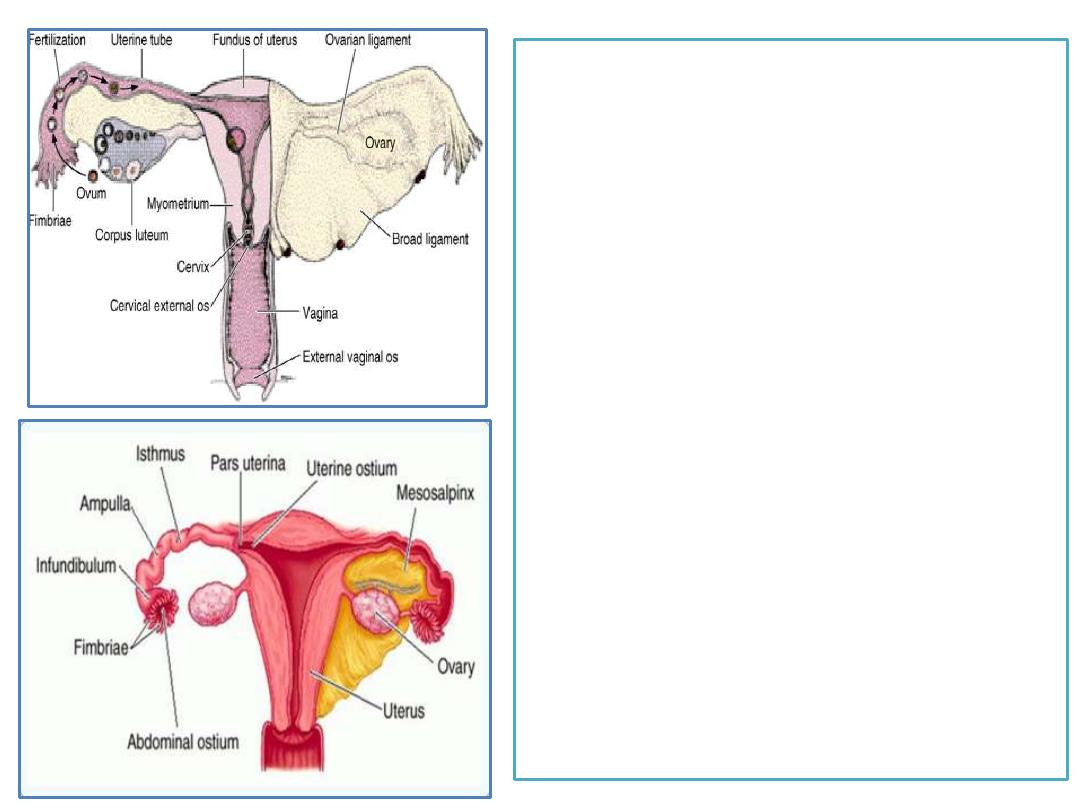
Vagina : 200 to 600
million sperms are
deposited during sexual
intercourse
Only 1% of sperm
deposited in the vagina
enter the cervix
Uterus
Uterotubal junction a
significant barrier
isthmus, sperm become
less motile and cease
their migration
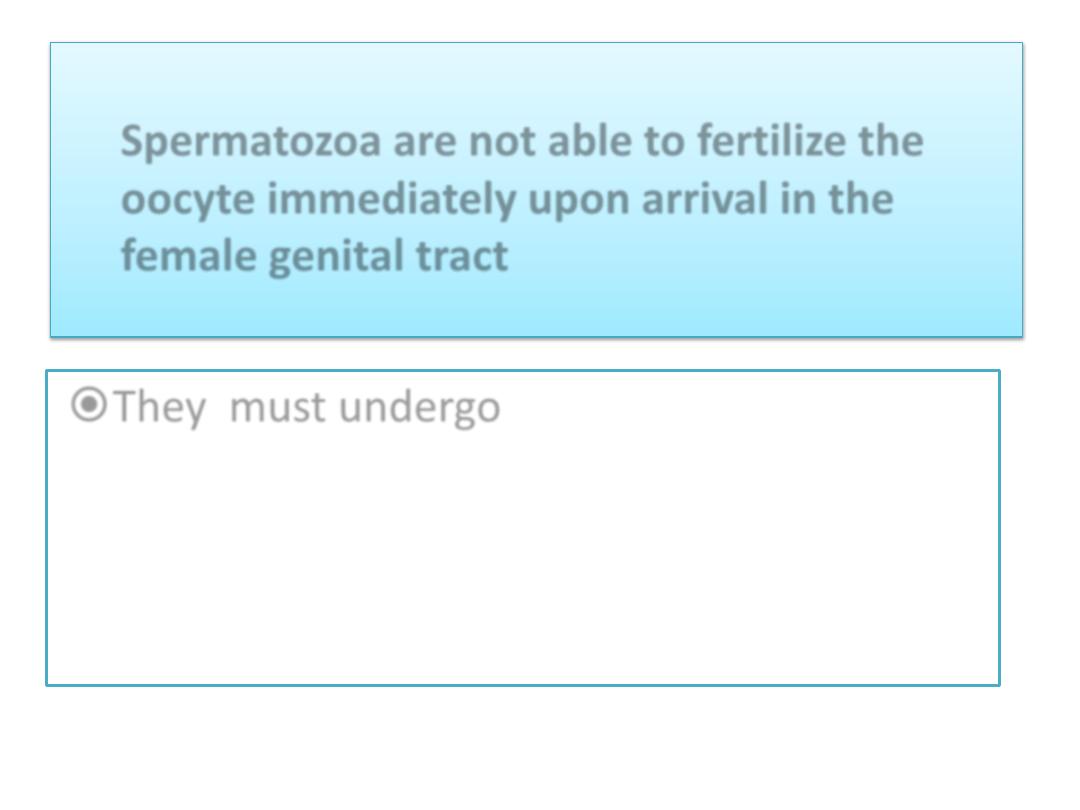
Spermatozoa are not able to fertilize the
oocyte immediately upon arrival in the
female genital tract
They must undergo
(1) capacitation
(2) acrosome reaction to acquire this capability
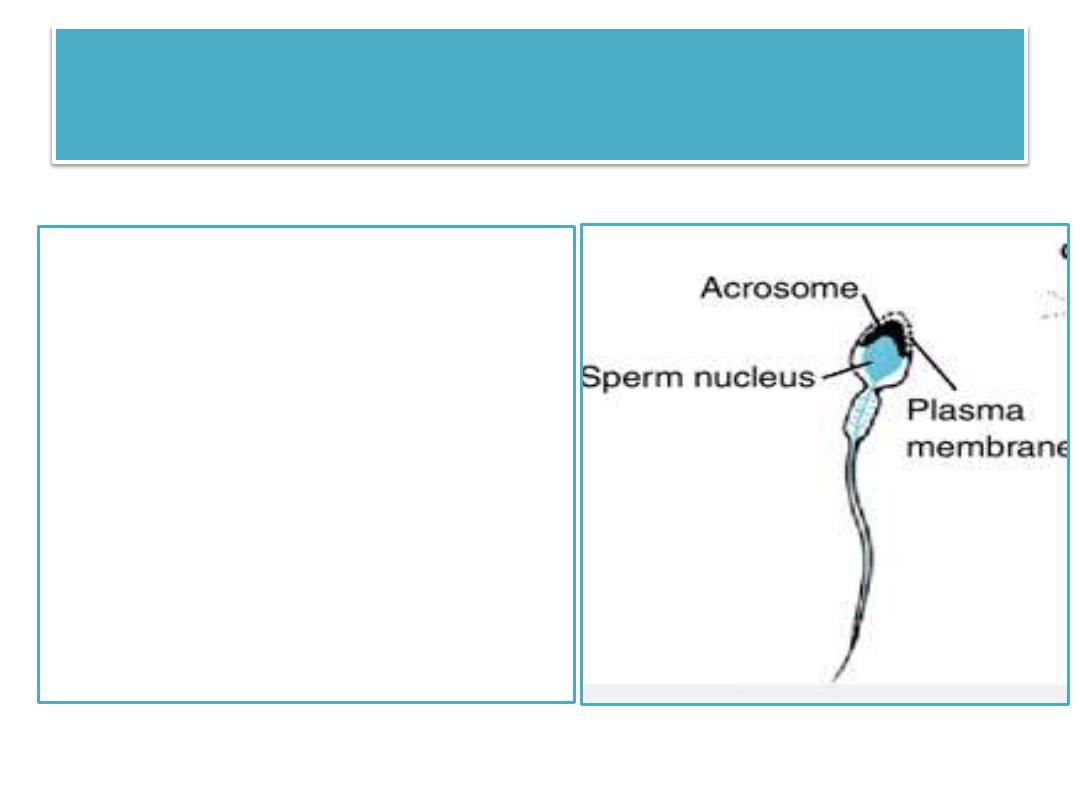
Oviduct
Capacitation
It is a period of
conditioning in the female
reproductive tract ,
associated with
1.removal of glycoprotein
coat and seminal plasma
proteins
2. reorganization of plasma
membrane lipids and
proteins
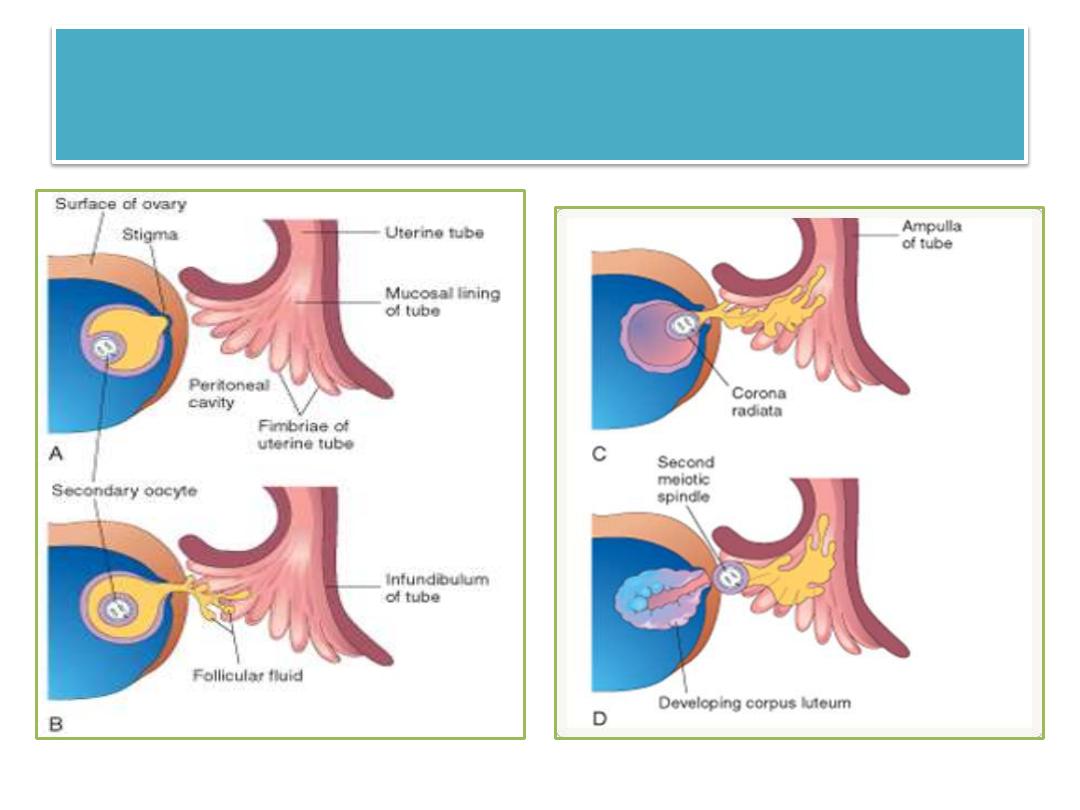
Oviduct
Oocyte transport
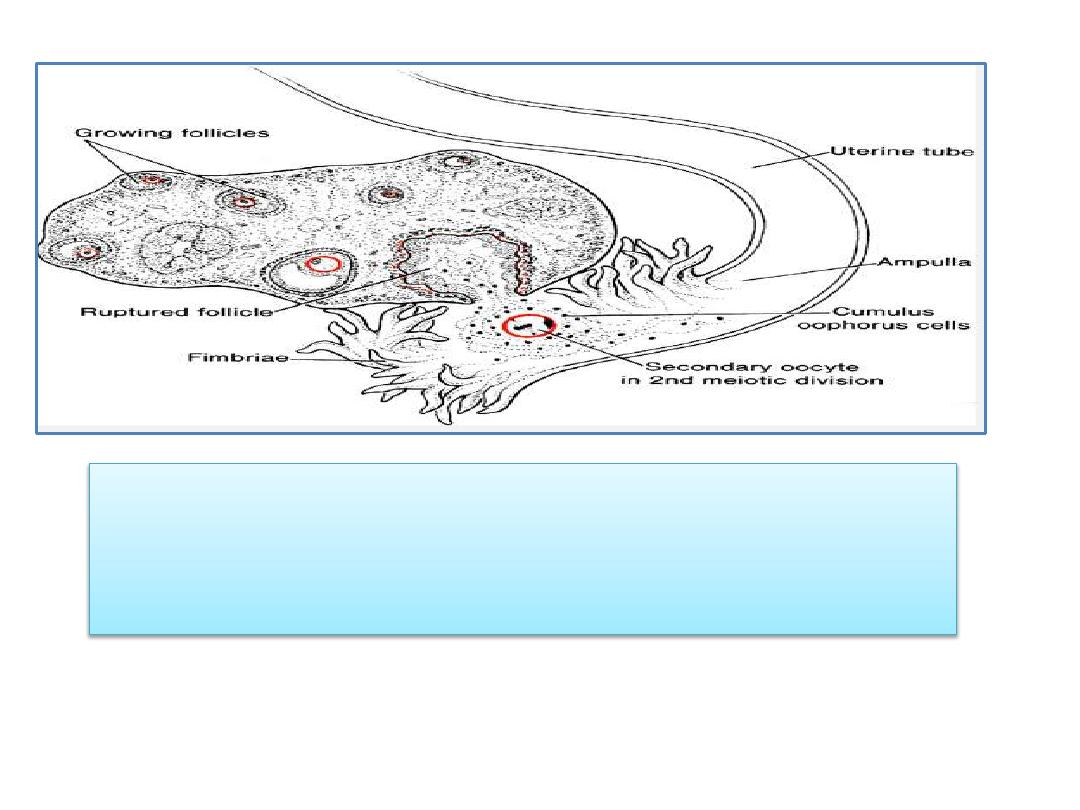
Fertilization takes place in the ampulla
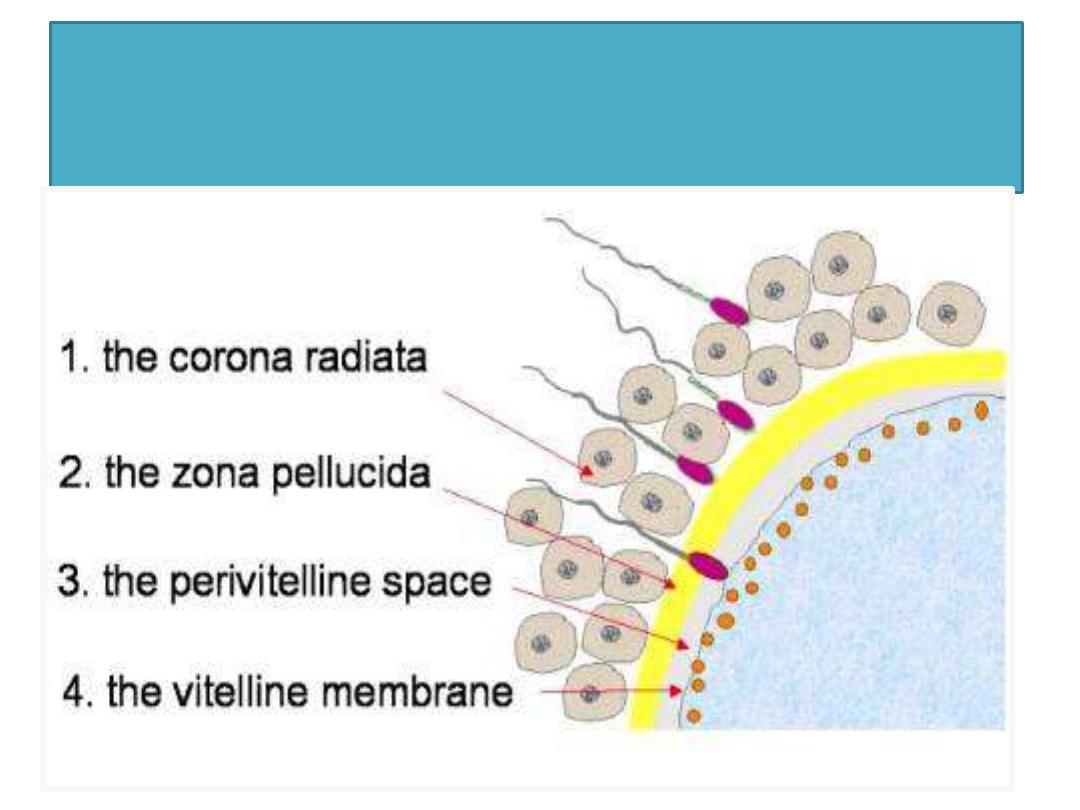
A spermatozoon has to penetrate four layers
before it fertilizes the oocyte:
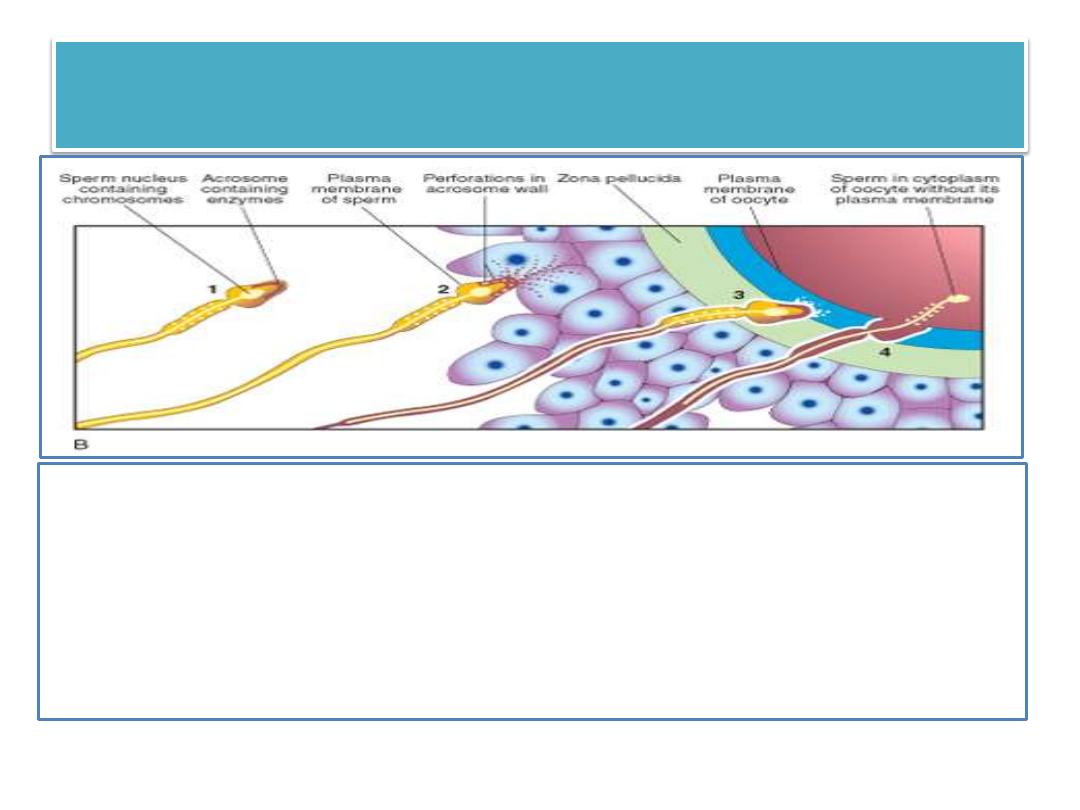
1. Passage of a sperm through the corona
radiata
.
Only capacitated sperm pass freely through
corona cells
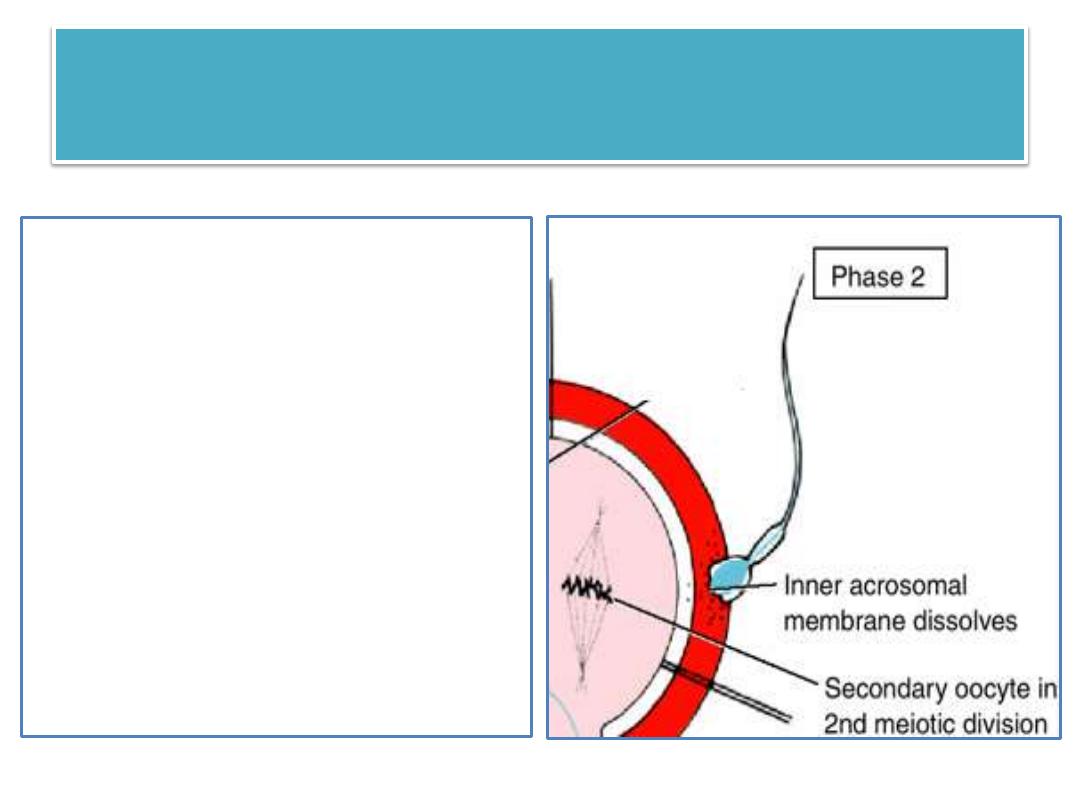
2. Penetration of the zona pellucida
binding of
zp3
to
molecules on the
acrosomal cap of the
sperm cell
This binding initiates the
acrosomal reaction
Ca2+ influx into sperm
release of hydrolytic
enzymes (acrosin- and
trypsin-like substances).
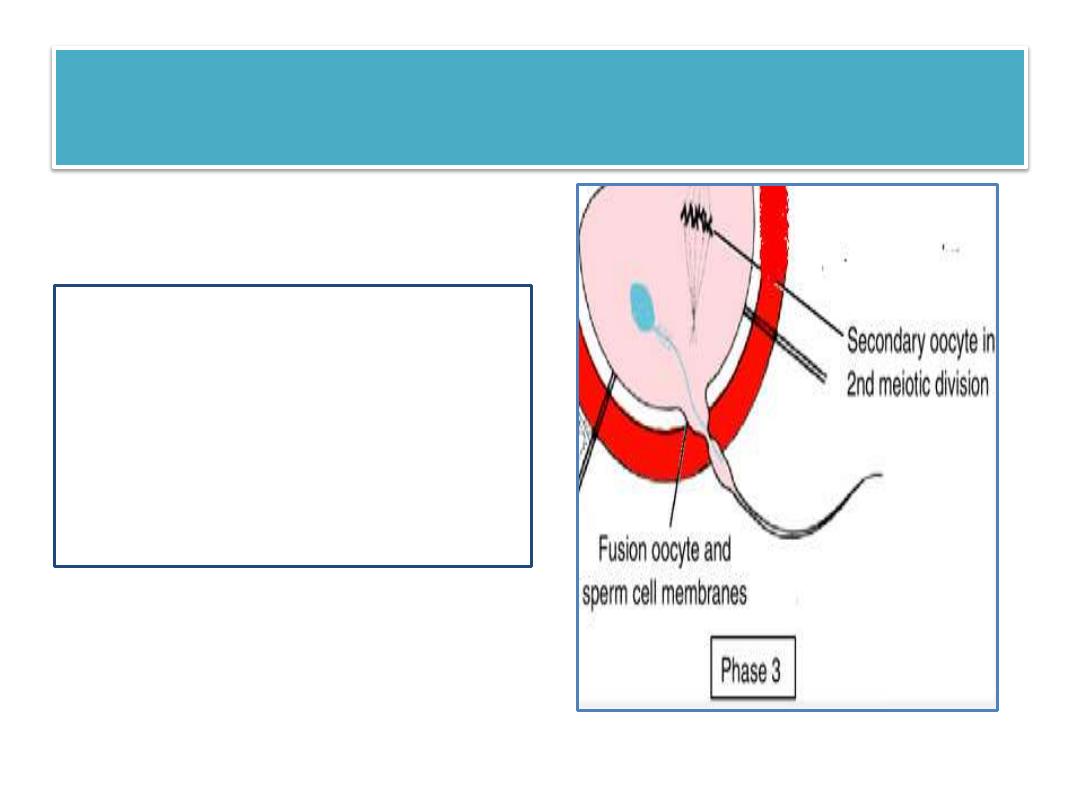
3. Fusion of the Oocyte and Sperm Cell
Membranes
interaction of
integrins
on the
oocyte and their
ligands,
disintegrins
,
on sperm.
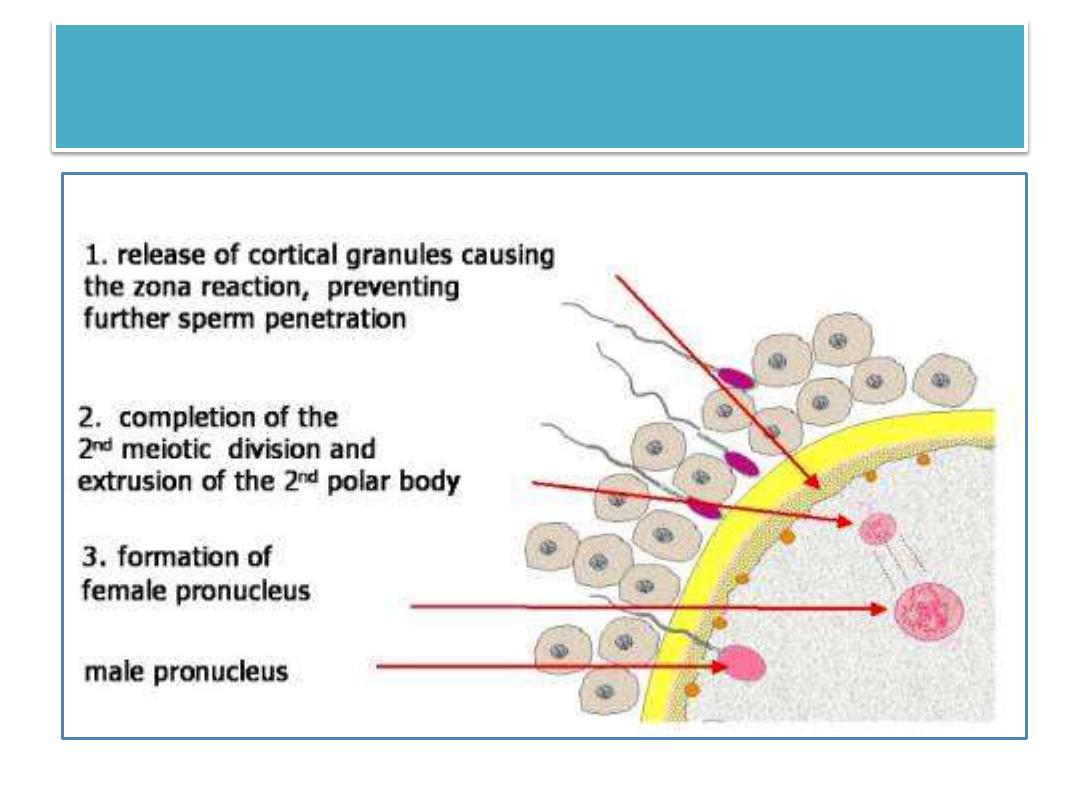
Three changes occur in the oocyte after
penetration of vitelline membrane:

Polyspermy
penetration of more than one spermatozoon into the
oocyte
Prevention of poly spermy:
1. Fast block to polyspermy - depolarization of the
oocyte plasma membrane occurs within 2-3 seconds
2. Slow block to poly spermy - exocytosis of water and
other molecules from cortical granules- zp3 is
inactivated and no additional sperm cells can attach

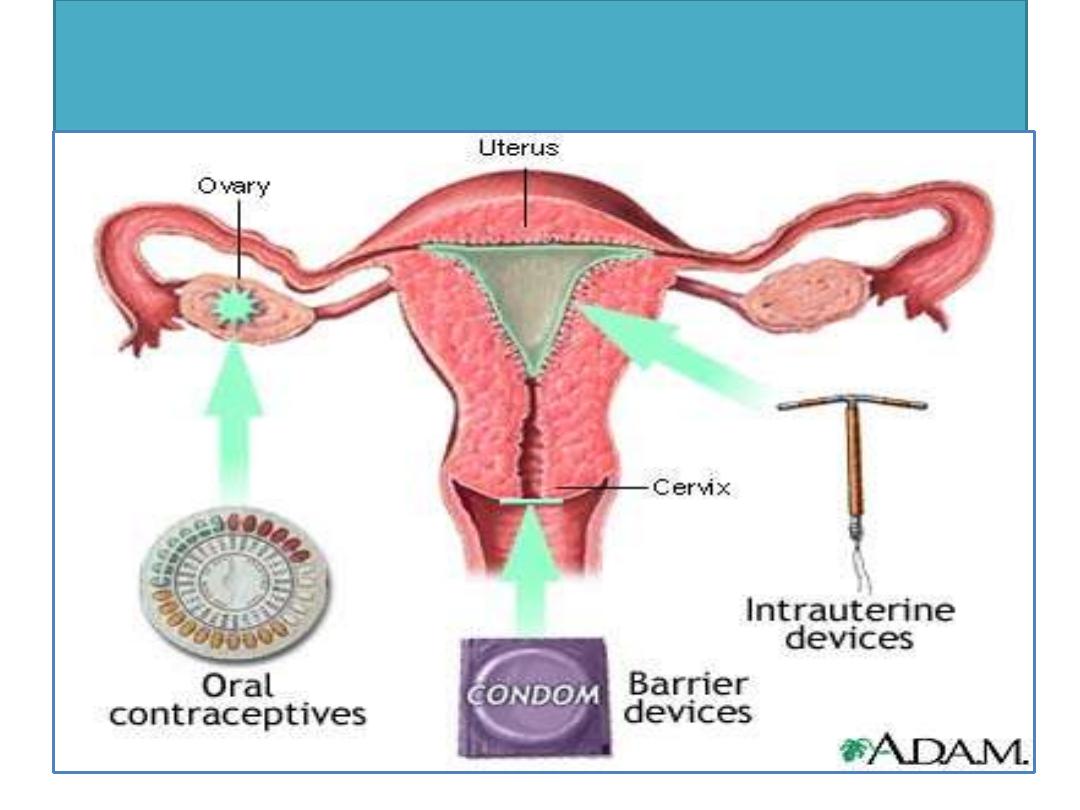
Contraceptive Methods
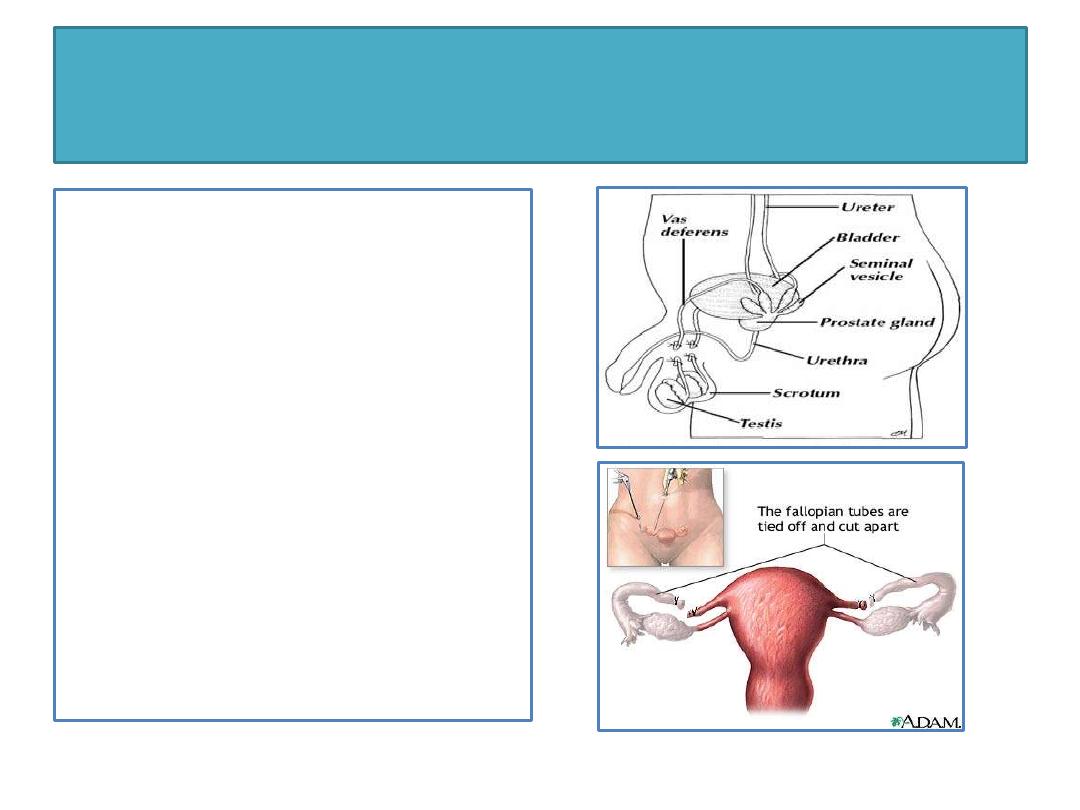
Vasectomy and tubal ligation
• are effective means of
contraception
• both procedures are
reversible, although not
in every case.

Assisted reproductive technology (ART)
• In vitro fertilization (IVF)
• intracytoplasmic sperm injection (ICSI)
• gamete intrafallopian transfer (GIFT)
• zygote intrafallopian transfer (ZIFT)
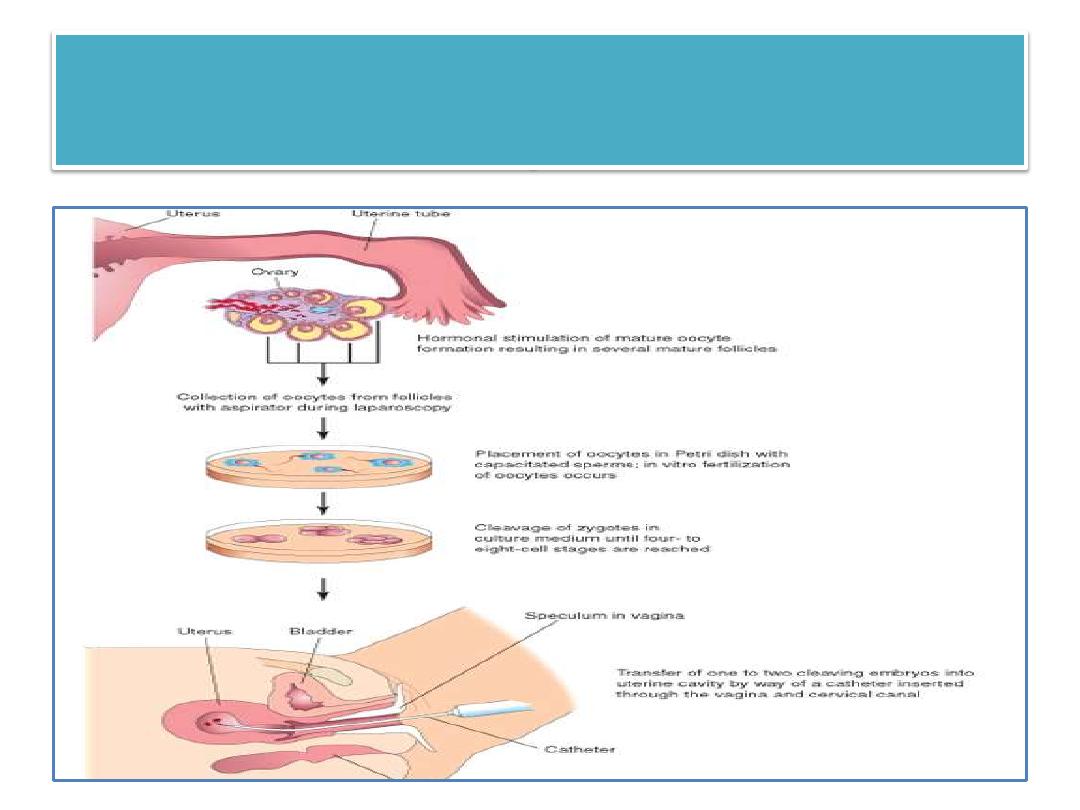
In vitro fertilization and embryo
transfer procedures.

The following methods of ART require patent
uterine tubes
Gamete intrafallopian
transfer (GIFT
oocytes and sperm
are placed into the
ampulla of the
fallopian (uterine)
tube, where
fertilization takes
place.
zygote intrafallopian
transfer (ZIFT)
fertilized oocytes
are placed in the
ampullary region.
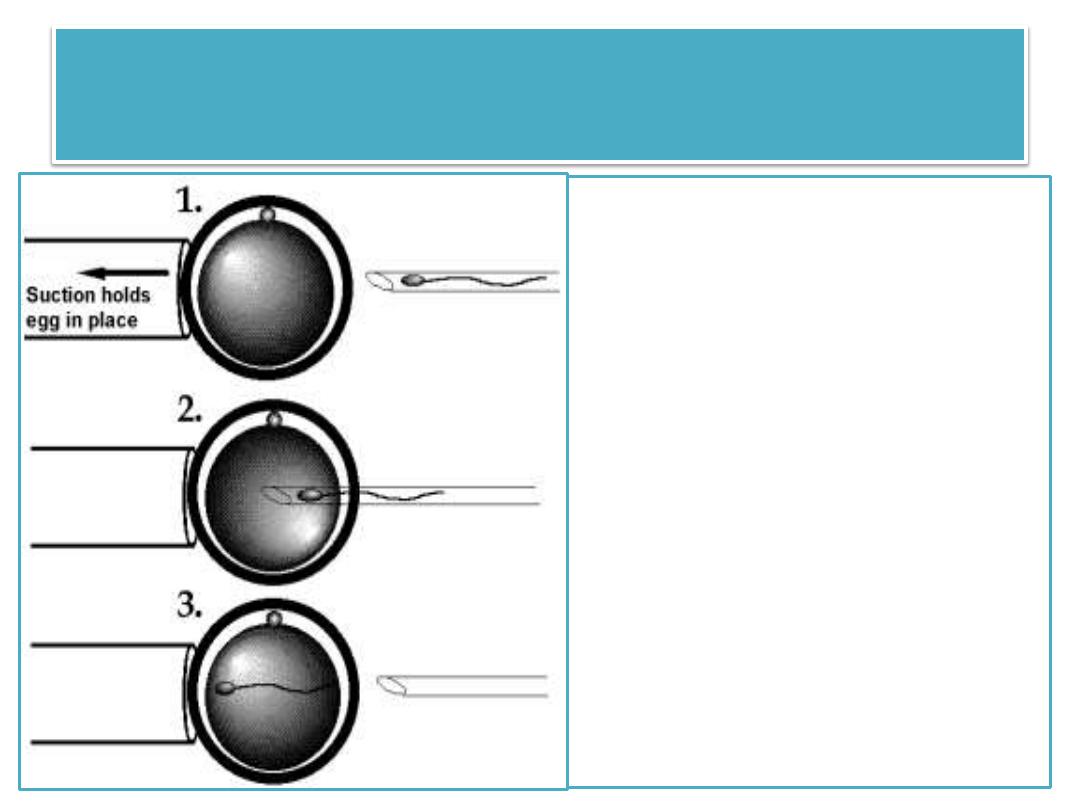
Intracytoplasmic sperm injection (ICSI)
• (oligozoospermia) or
even (azoospermia),
can be overcome by
using
intracytoplasmic
sperm injection
(ICSI).
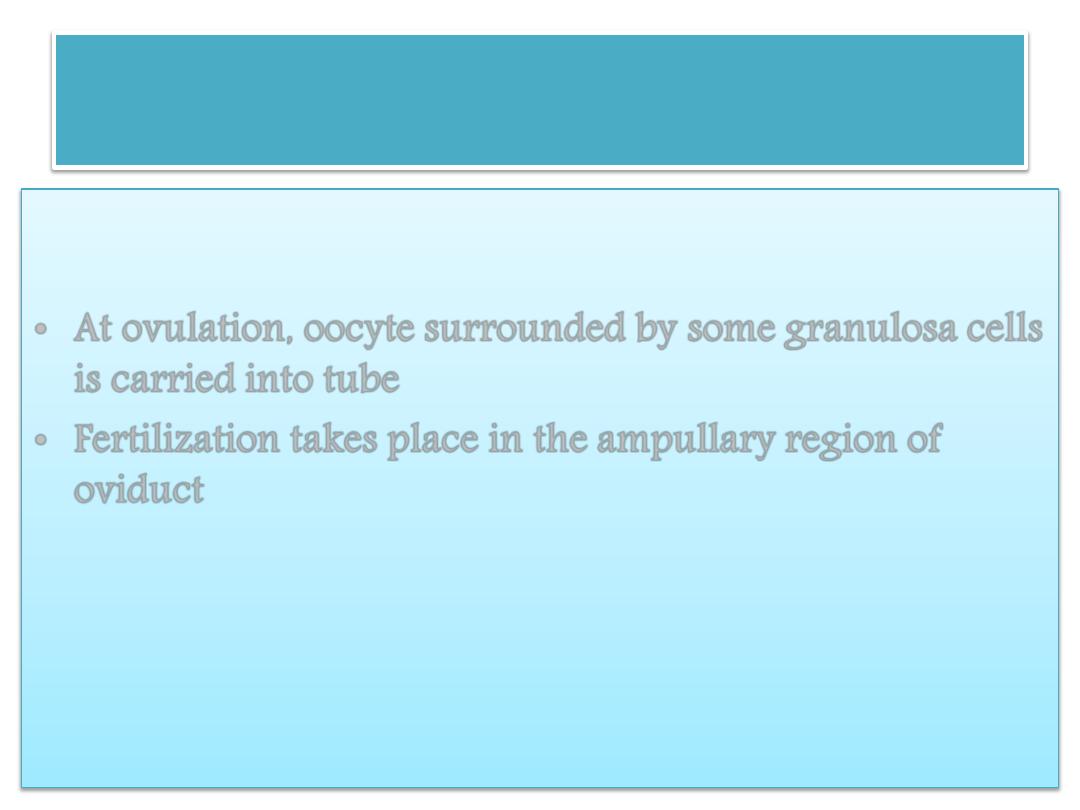
Summary
•
Sperm must undergo capacitation & acrosome reaction
to acquire their capabilities for fertilizing an oocyte
•
At ovulation, oocyte surrounded by some granulosa cells
is carried into tube
•
Fertilization takes place in the ampullary region of
oviduct
•
spermatozoon has to penetrate corona radiata, zona
pellucida, vitelline membrane before it fertilizes the
oocyte
•
Polyspermy is prevented by fast and slow blocks
